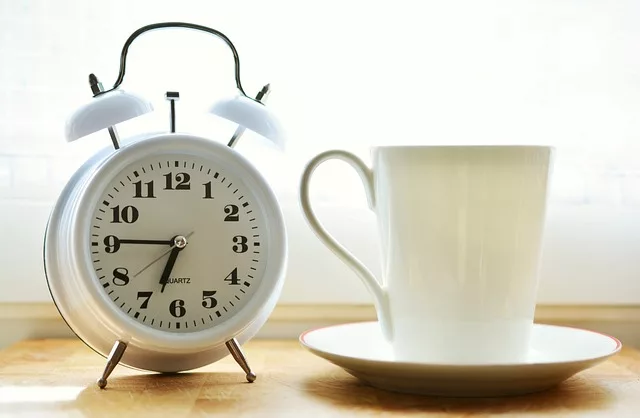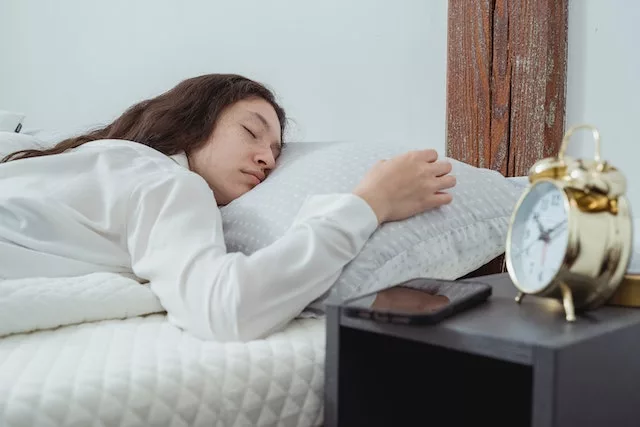We all know that a good night’s sleep is essential for our overall well-being, but did you know that our diet plays a significant role in the quality of our sleep? The foods we consume can either promote or hinder our ability to achieve restful and rejuvenating sleep. Conversely, the quality and duration of our sleep can also influence our dietary choices. In this comprehensive article, we will delve deeper into the intricate diet and sleep connection, and provide practical strategies for optimizing both.
Diet’s Impact on Sleep
Nutrients for Sleep Regulation:
- Tryptophan: Tryptophan is an amino acid that plays a crucial role in the production of serotonin and melatonin, hormones that regulate sleep-wake cycles. Foods rich in tryptophan include turkey, chicken, dairy products, nuts, and seeds. Consuming these foods can increase serotonin production in the brain, promoting relaxation and sleepiness.
- Magnesium: Magnesium is a mineral known for its relaxing properties. It helps regulate neurotransmitters involved in sleep and muscle relaxation. Dark leafy greens, legumes, nuts, and whole grains are excellent sources of magnesium that can support restful sleep.
- B Vitamins: B vitamins, particularly vitamin B6, are essential for converting tryptophan into serotonin. This conversion aids in the regulation of sleep and mood. Whole grains, legumes, leafy greens, and fish are rich sources of B vitamins.
Stimulants and Sleep Disruptors:
- Caffeine and Sleep: Caffeine is a stimulant that can interfere with falling asleep and reduce sleep quality. It blocks adenosine receptors, a neurotransmitter involved in promoting sleep. Avoid or limit consumption of caffeinated beverages such as coffee, tea, soda, and chocolate, especially in the late afternoon and evening.
- Alcohol and Sleep: While alcohol may initially induce drowsiness, it can disrupt the later stages of sleep, leading to fragmented and less restorative rest. It can also worsen snoring and sleep apnea symptoms. If you drink alcohol, do so in moderation and avoid consuming it close to bedtime.
- High-Sugar and Processed Foods: Excessive consumption of sugary and processed foods can lead to blood sugar spikes and crashes, affecting sleep stability and overall sleep quality. Opt for whole, unprocessed foods to maintain balanced blood sugar levels throughout the day.
Sleep’s Impact on Diet
Hormonal Regulation:
Leptin and Ghrelin: Sleep deprivation can disrupt the balance of hormones that regulate hunger and satiety. Ghrelin, the appetite-stimulating hormone, increases, leading to increased hunger and food cravings. At the same time, leptin, the hormone responsible for signaling fullness, decreases, making it harder to feel satisfied after meals. Lack of sleep can thus contribute to overeating and weight gain.
Emotional Regulation and Cravings:
- Stress and Emotional Eating: Sleep deprivation elevates stress levels, triggering the release of cortisol, the stress hormone. Increased stress can lead to emotional eating and a preference for high-calorie, comfort foods. Managing stress through relaxation techniques and adequate sleep can help curb emotional eating tendencies.
- Reward Pathways: Sleep deprivation affects the brain’s reward system, increasing the desire for calorie-dense and rewarding foods. This can lead to a greater likelihood of indulging in unhealthy food choices and impulsive eating.
Strategies for a Healthy Sleep-Diet Cycle
Establish a Consistent Sleep Routine:
- Set a regular sleep schedule by going to bed and waking up at the same time each day, even on weekends. This helps regulate your body’s internal clock and promotes better sleep quality.
- Create a relaxing pre-bedtime routine to signal your body that it’s time to unwind. Engage in activities such as taking a warm bath, reading a book, practicing relaxation techniques, or listening to calming music.
Promote a Sleep-Friendly Environment:
- Keep your bedroom cool, dark, and quiet to create an optimal sleep environment. Use earplugs, eye masks, or white noise machines if necessary.
- Limit exposure to electronic devices before bed as the blue light emitted can interfere with melatonin production, making it harder to fall asleep. Consider implementing a digital curfew at least one hour before bedtime.
Adopt a Balanced and Sleep-Supportive Diet:
- Consume a balanced diet rich in whole foods, including fruits, vegetables, lean proteins, whole grains, and healthy fats. These provide essential nutrients for overall health, including sleep regulation.
- Incorporate sleep-promoting foods into your evening meals or snacks. Foods rich in tryptophan, such as turkey, chicken, dairy products, nuts, and seeds, can aid in serotonin production. Magnesium-rich foods like dark leafy greens, legumes, nuts, and whole grains can help relax muscles and promote restful sleep.
- Avoid heavy, spicy, or fatty meals close to bedtime, as they can cause discomfort and disrupt sleep. Opt for lighter, well-balanced meals that are easier to digest.
Mindful Eating and Stress Management:
- Practice mindful eating techniques to become more aware of hunger and fullness cues, allowing you to make conscious food choices. Avoid distractions while eating and savor each bite.
- Incorporate stress management techniques such as meditation, deep breathing exercises, yoga, or engaging in hobbies and activities that help you relax. Reduced stress levels can positively impact sleep quality and dietary choices.
The connection between diet and sleep is a powerful one, with each influencing the other in profound ways. By adopting a balanced diet, we can optimize both our dietary choices and sleep quality. Remember that individual needs and preferences may vary, so it’s important to listen to your body and make adjustments accordingly. Prioritizing a healthy sleep-diet cycle is key to achieving overall well-being and vitality.
Photo by Keenan Constance
Sleep
-

How to Snack at Night to Sleep Well?
Snacking is a common part of modern eating habits, often providing a source of comfort and satisfaction. However, the timing and content of these snacks can have significant effects on various aspects of health, including sleep. In this article, we will explore the relationship between late-night snacking and sleep, highlighting the potential impacts on sleep…
-

What is a Sleep Log and why you need one: Unlocking the Secrets to Better Rest and Overall Health
-

Exploring the Relationship Between Intermittent Fasting and Sleep Quality
-

The Role of Hormones in Sleep and Natural Ways to Improve Hormone Health for Better Sleep
-

The Powerful Diet and Sleep Connection: Understanding the Impact
-

How to master the Art of Power Naps: A Guide to Healthy and Effective Power Naps
-

7 Essential Oils in Aromatherapy to Promote Sleep








Leave a Reply